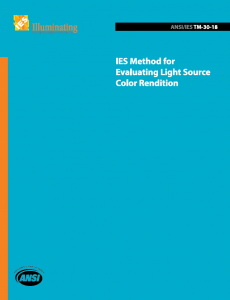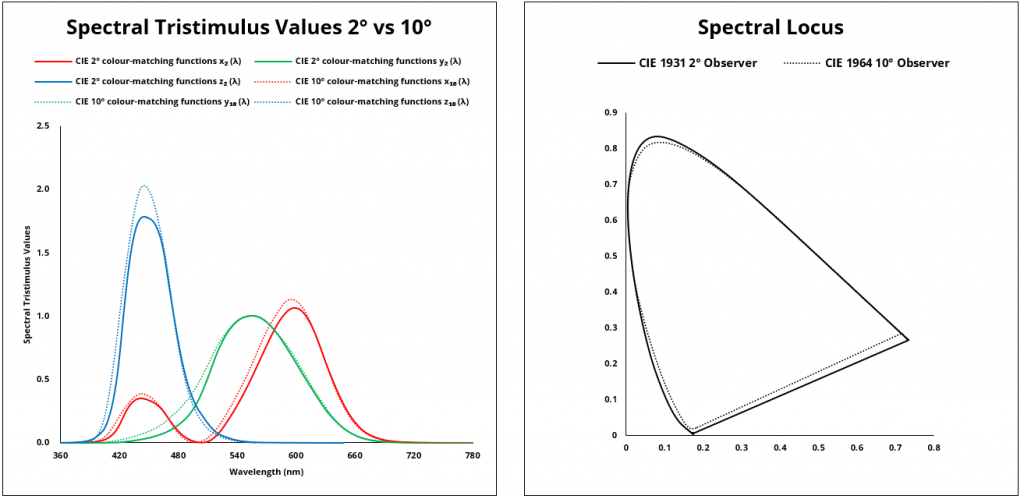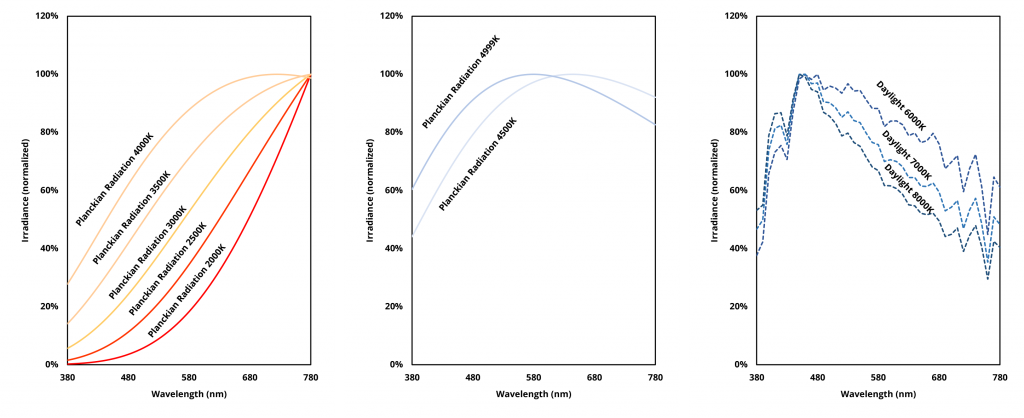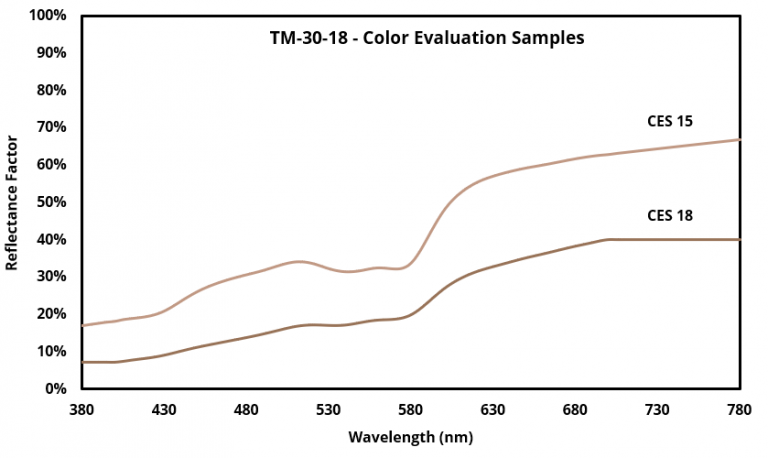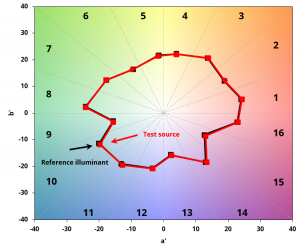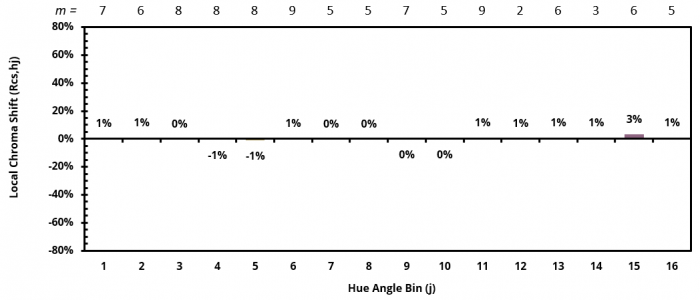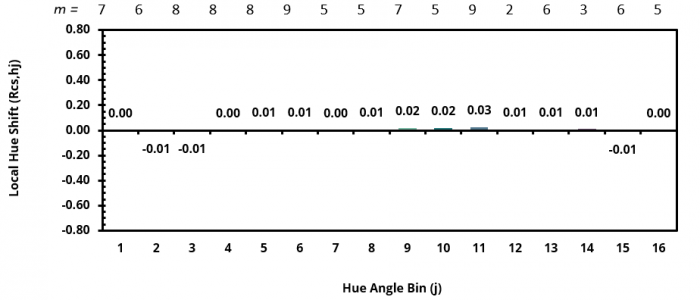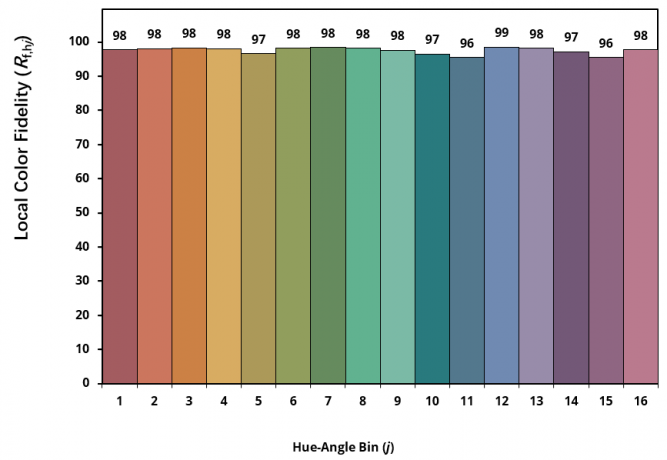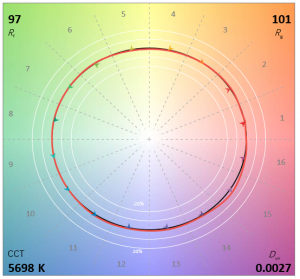TM-30-18 method utilizes 99 color evaluation samples (CES) which are selected from more than 100,000 measured objects to be representative of the world of possible colors, those of which are based on various origins as textiles, plastics, skin tones and color systems.
Comparatively, CRI utilizes 15 test color samples (TCS) which do not represent the actual colors in the real world, and the general color rendering index only calculates the arithmetic mean value on the first 8 TCS.
The fidelity index Rf has been introduced to the Technical Report CIE 015:2018 and it is aiming to be a new standard for color evaluation. Similar to the color rendering index, Rf is an accurate measure of average color fidelity and has a range of 0 to 100, with higher numbers indicating more similarity to the reference.

